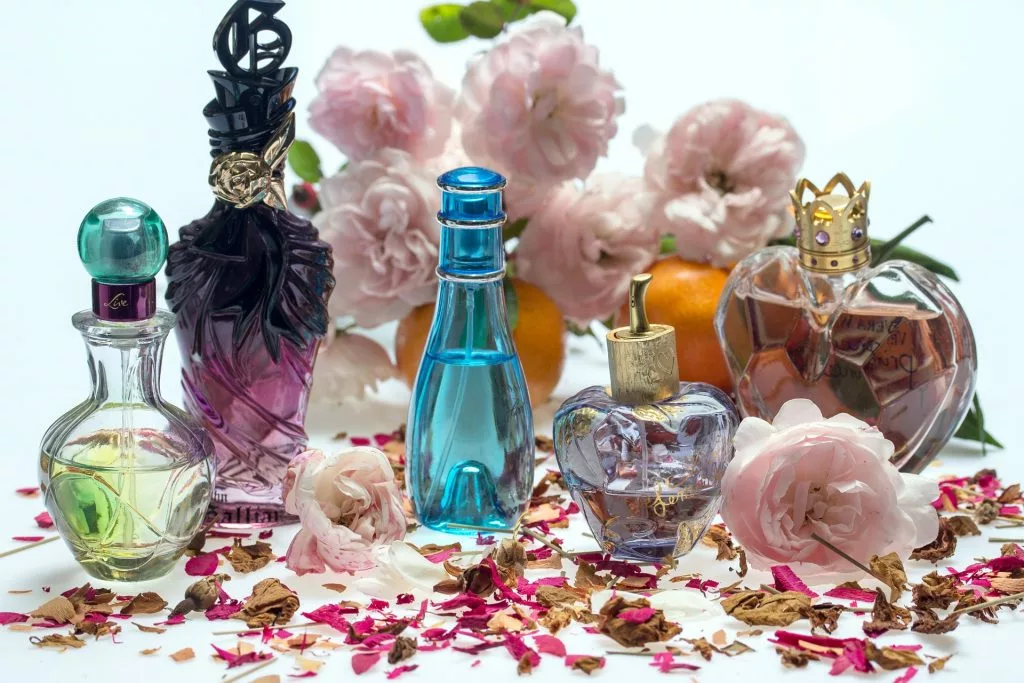
Each morning, before going about your day, do you spritz on your favorite perfume? Next time you do, look at the ingredient list. You’ll probably see the word “Fragrance.” It seems appropriate for a perfume, but what exactly is it? Turns out, a whole bunch of chemicals that could be toxic.
The word “Fragrance” on any product’s ingredient list refers to the mixture of natural and synthetic chemicals that give your products that pleasant smell. Even unscented products may list “Fragrance” as an ingredient, because chemical companies may need it to counteract foul-smelling ingredients to give the product a neutral odor. A 2010 study on perfumes and colognes found that, on average, there were 14 secret chemical ingredients in the fragrance cocktail that consumers do not see listed on the product label. Compared to the average 15 listed ingredients, almost half of the ingredients in your perfume are a secret.
Smells fishy, but why is that so bad? Well, to start, many of those secret ingredients are associated with allergic reactions. Fragrance is among the top five allergens in the world! The study discovered over 24 chemicals that could act as allergy triggers, possibly causing a variety of symptoms, such as headaches, dizziness, rashes, coughing, vomiting, and skin irritation. Keeping in mind that these chemicals could trigger you and those around you, fragrances can pose a serious risk to a large number of people.
If severe allergic reactions aren’t enough, fragrance mixtures may also contain toxic chemicals. For instance, the 2010 study determined that fragrance mixtures contained, on average, four hormone disruptors, which can impact development and ordinary body function. Also in the mixtures were phthalates, which are a group of chemicals that present various health risks. For example, diethylhexyl phthalate and dibutyl phthalate harm the reproductive system, and diethylhexyl phthalate is possibly carcinogenic. Additionally, studies have linked phthalates to abnormal fetal development. Other chemicals in fragrance included, for example, styrene, which is a possible carcinogen, and lead, which disrupts child development. Even worse, regulators have never assessed a large percentage of the chemicals found in fragrances for safety, and no one really understands what daily, cumulative exposure to these chemicals is doing to people’s bodies.
Chemicals in perfumes present an even higher health risk than ordinary cosmetics because, when sprayed, the toxic ingredients are inhaled by the user in addition to being absorbed through the skin. So, the chemicals accumulate in the body through more means than the toxins in ordinary cosmetics. And, just like other cosmetic products, cosmetic fragrance mixtures are poorly regulated in the United States. The Food and Drug Administration (FDA) is in charge of the cosmetics industry, which includes perfumes. But, laws and regulations exempt fragrance mixtures from federal labeling requirements because the mixtures are trade secrets. So, hazardous chemicals do not need to be disclosed to consumers. The law also does not require that fragrance ingredients have FDA approval before going to market.
The FDA does not even have the legal authority to require allergen labeling for cosmetics, let alone to make companies disclose potentially hazardous chemicals. So, if you are sensitive to fragrance components or looking to avoid toxins, the FDA recommends that you shop for “fragrance–free products” and “choose products that do not include ‘Fragrance’ in the ingredient list.” Until the FDA can require that all ingredients are on a label, consumers cannot be sure of what’s in a product, which stinks! So, the next time you are shopping for perfume, visit the Environmental Working Group’s database for a full list of toxic-free products, since they are an industry watchdog group with a nose for this sort of thing.
Overall, consumers must continue to sniff out what ingredients are in their cosmetic products, including their perfumes, on their own. If you or your family have been impacted by health problems following the use of perfumes or other cosmetics, please call our cosmetics injury attorneys for a free and confidential case evaluation at 670-527-1595. Our legal team can help you determine if you have a case.
Blog written by Dayna Smith.
